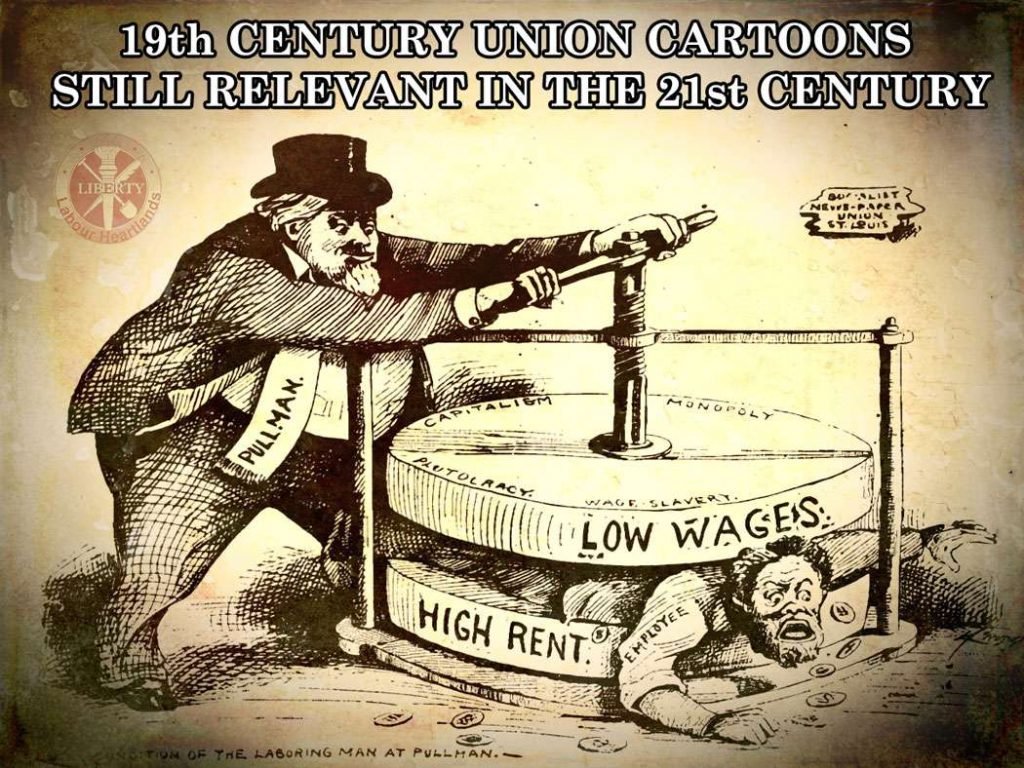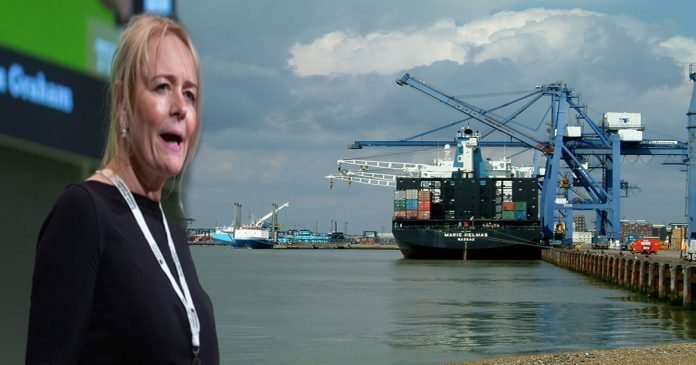Workers at the Port of Felixstowe, represented by the union Unite, voted by over 92% on an 81% turnout to strike in a dispute over pay.
Dockers at the UK’s largest container port have voted overwhelmingly to strike after they were offered a below-inflation pay rise, with action planned for August in the latest blow to efforts by ministers to contain a wave of industrial unrest sparked by the cost of living crisis.
Workers at the port of Felixstowe in Suffolk balloted 92% in favour of a strike next month, rejecting a 5% pay rise offer from the Felixstowe Dock and Railway Company, which their union, Unite, pointed out would be a real-terms pay cut with retail price inflation standing at 11.8%.

“Workers should not be paying the price for the pandemic with a pay cut,” said the Unite general secretary, Sharon Graham. “Unite has undertaken 360 disputes in a matter of months and we will do all in our power to defend workers.”
Supply chain standstill
“Strike action would bring Felixstowe to a standstill and would cause major logistical problems for maritime and road haulage transport entering the port,” Unite said in a statement on their website.
Unite regional officer Miles Hubbard said a strike “will inevitably create huge disruption across the UK’s supply chain”. He added that Unite had about 1,900 members at the port.
Talks ongoing
According to the BBC, port spokesman Paul Davey said: “Both parties are still talking and we hope to avoid any industrial action.”
The dispute centred over a pay offer of 5%, which Unite has said was effectively a pay cut when compared to the rate of inflation.
“The company made what we believe to be a very fair offer and we are disappointed with the result of the ballot,” said Davey.
The Port of Felixstowe, in Felixstowe, Suffolk, is the United Kingdom’s busiest container port, dealing with 48% of Britain’s containerised trade. In 2017, it was ranked as 43rd busiest container port in the world and 8th in Europe, with a handled traffic of 3.85 million twenty-foot equivalent units
The port is operated by the Felixstowe Dock and Railway Company, which was set up under an Act of Parliament, the Felixstowe Railway and Pier Act 1875, and so is one of the few limited companies in the UK that do not have the word “Limited” in their name.
Much of the land on which it sits is owned by Trinity College, Cambridge, which in the 1930s bought some land near Felixstowe which included a dock that was too small to be included in the National Dock Labour Scheme. In 1967, it set up Britain’s first container terminal for £3.5m in a deal with Sea-Land Service.
Because container shipping is much more economically efficient in bulk, this early start led to it becoming the UK’s largest container port, despite its previous insignificance to the shipping market.
Felixstowe is owned by Hutchison Port Holdings (HPH) Group and has always been privately owned. In 1951, Gordon Parker, an agricultural merchant, bought the Felixstowe Dock & Railway Company, which at the time was handling only grain and coal. In 1976, Felixstowe was bought by European Ferries. In June 1991, P&O sold Felixstowe to Hutchison Whampoa of Hong Kong for £90m. In June 1994, Hutchison Whampoa’s Hutchison International Port Holdings bought out Orient Overseas International’s 25% stake in Felixstowe for £50m.
Summer of discontent
Sky News reports that the strike will take place next month if talks do not progress.
The proposed industrial action would form part of a wider union campaign for improvements to wages in response to the cost of living crisis.
This has so far resulted in national rail and Tube strikes – with the prospect of more industrial action to follow.
Could a national strike be coming?
Yesterday in response to the Labour leader Sir Keir Starmer’s decision to sack his shadow transport minister for joining striking rail workers on a picket line found John McDonnell described it as a “severe mistake”, he went on to accuse Starmer of “misreading the mood of the public” and backed calls for a general strike.
Labour’s poor position on supporting striking workers has led to a massive backlash on social media and within his own Party.
The former shadow chancellor John McDonnell said: “I don’t know who is advising Keir Starmer, but this is a completely unnecessary row that’s been invented just at a time when the Tories are tearing themselves apart, and we’ve got the maximum opportunity I think to gain an advantage in the polls that will build the support to take us into a government.”
He added: “This is an unnecessary dispute and whoever has advised Keir Starmer on this, I think he has made a severe mistake.”
Asked about the general strike proposed by RMT general secretary Mick Lynch, the Labour former shadow chancellor said: “If you look at the ballots that are taking place across the trade union movement, we are talking about millions of workers now voting for industrial action. So, naturally, what people are saying as well, why not co-ordinate that?
“Well, I support co-ordinated action, because if that results in a decent pay rise for people, they are protected against the cost-of-living crisis. I think that’s the most effective thing to do.”
Urging the party to take a different stance on the strikes, Mr McDonnell said: “I think mistakes have been made from the very beginning. We need to stand back and actually start trying to secure unity across not just the whole labour and trade union movement, but across the country overall. I think Keir and his advisers have completely misread the situation. I think they’ve misread the mood within the labour and trade union movement. But I also think they have misread the mood amongst the general public.”
Condemnation from unions, Labour MPs and other figures arrived shortly after the sacking.
MP for York Central Rachael Maskell called for the Labour leader to visit picket lines on Wednesday night, while GMB general secretary Gary Smith said it was a “huge own goal” for Labour to “turn a Tory transport crisis into a Labour story”.
#costoflivingcrisis
Support Independent Journalism Today
Our unwavering dedication is to provide you with unbiased news, diverse perspectives, and insightful opinions. We're on a mission to ensure that those in positions of power are held accountable for their actions, but we can't do it alone. Labour Heartlands is primarily funded by me, Paul Knaggs, and by the generous contributions of readers like you. Your donations keep us going and help us uphold the principles of independent journalism. Join us in our quest for truth, transparency, and accountability – donate today and be a part of our mission!
Like everyone else, we're facing challenges, and we need your help to stay online and continue providing crucial journalism. Every contribution, no matter how small, goes a long way in helping us thrive. By becoming one of our donors, you become a vital part of our mission to uncover the truth and uphold the values of democracy.
While we maintain our independence from political affiliations, we stand united against corruption, injustice, and the erosion of free speech, truth, and democracy. We believe in the power of accurate information in a democracy, and we consider facts non-negotiable.
Your support, no matter the amount, can make a significant impact. Together, we can make a difference and continue our journey toward a more informed and just society.
Thank you for supporting Labour Heartlands












